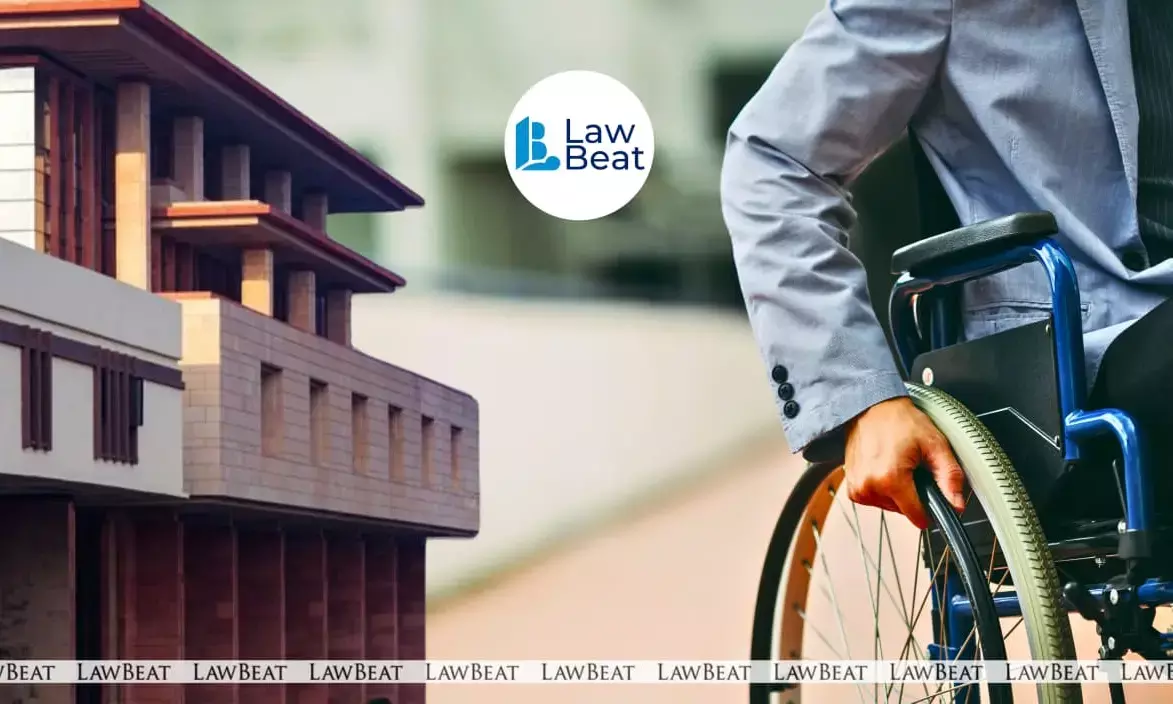Delhi HC Seeks Amendment To Disability Act To Carry Forward Unfilled Quota Seats In Higher Education

The Delhi High Court has recently asked the Law Commission of India to consider amendments to the Rights of Persons with Disabilities Act, 2016 (RPwD Act), to ensure that seats reserved for students with benchmark disabilities in higher education, if left vacant, are carried forward to the next academic year or diverted to persons with disabilities.
In a detailed 23-page verdict, a Bench of Chief Justice Devendra Kumar Upadhyaya and Justice Tushar Rao Gedela said, “In our opinion, a provision providing for carrying forward the seats in higher educational institutions, which cannot be filled in on account of non-availability of persons with benchmark disabilities, to the next academic year and/or a provision for diverting such seats to persons with disabilities will go a long way to fulfil the aims and objects of the RPwD Act.”
The verdict came on a plea filed by Jahanvi Nagpal, a NEET-UG 2022 aspirant, who sought a direction to the Union of India and the National Medical Commission to allocate a seat to her against one of the vacancies under the Persons with Disabilities (PwD) category in the NEET-UG 2022 cycle, as per the procedure and in terms of the provisions prescribed under Section 32 of the Rights of Persons with Disabilities Act, 2016.
An alternate prayer was also made for a fresh medical examination by a new medical board at AIIMS to reassess her disability. The petition further sought a declaration that Section 32(1), read with the 2019 amendment, was unconstitutional insofar as it restricted reservation to persons with benchmark disabilities.
Her counsel, Advocate Rahul Bajaj, later clarified that the constitutional challenge was not pressed, but argued that unfilled disability quota seats should not lapse to the open category. Instead, they should be offered to persons with less than 40% disability or carried forward to the following academic year. He stressed that without such safeguards, “the very purpose of providing reservation in higher educational institutions under the RPwD Act gets defeated.”
Opposing the plea, the Union of India and the National Medical Commission said that Section 32 is unambiguous in limiting reservation only to persons with benchmark disabilities. In the absence of any statutory provision, they argued, neither diversion of seats nor a carry-forward mechanism could be directed by the Court.
After hearing the submissions from both sides, the Court made a contrast between Section 34 of the RPwD Act, which deals with public employment and expressly provides for carrying forward of unfilled vacancies, and Section 32, which applies to higher education but contains no such provision.
“The rule of carry forward is thus absent in Section 32 of the Act, whereas it is available in the matter of public employment as per Section 34 of the Act. In the absence of any provision in Section 32 of the RPwD Act, or anywhere else in the said Act, providing for carrying forward a vacancy which could not be filled in on account of non-availability of persons with benchmark disabilities for admission, to the next academic year, it is difficult for the Court to issue directions for such carrying forward,” the Court said.
The Bench added that it was neither possible nor permissible for it to read such a mechanism into the law. “Since the prayer being urged by learned counsel for the petitioner lies in the realm of policy making, appropriate decision at the end of the Union of India may be required to be taken in this regard, for the purposes of achieving the object of meaningfully empowering the persons with disabilities,” the judges observed.
Disposing of the plea, the High Court referred the issue to the Law Commission of India to study and recommend amendments. “We thus find it appropriate to refer this issue to the Law Commission of India for conducting a study and accordingly to make recommendations for appropriate amendment(s) in the RPwD Act,” the order stated.
Concluding, the judges emphasised, “It is the need of the hour for the Union of India to address the issues raised so that the provisions of the RPwD Act can be applied with full force and vigour for empowering the persons with disabilities.”
For Petitioner: Mr. Rahul Bajaj, Adv. with Ms.Sarah, Adv.
For Respondent: Mr. Kavindra Kumar Gill, Senior Panel Counsel for R-1/UOI. Mr. T. Singhdev, Adv. with Mr.Abhijit Chakravarty, Mr.Anum Hussain, Mr.Bhanu Gulati, Mr.Tanishq Srivastava, Ms.Yamini Singh, Mr.Sourabh Kumar, Mr.Vedant Sood and Mr.Ramanpreet Kaur, Advs. for R-2/NMC.
Case Title: Ms Jahanvi Nagpal Vs Union of India & Ors.
Order Date: 16 September 2025
Bench: Chief Justice DK Upadhyaya and Justice Tushar Rao Gedela
